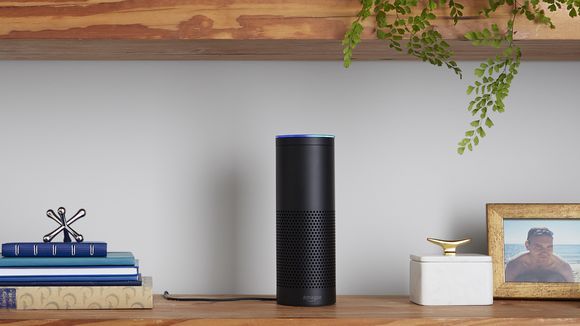QUESTION:
Are smart home devices always monitoring you?
ANSWER:
Yes, according to experts, it’s always listening.
SOURCES:
Dave Levin: Maryland Cybersecurity Center/Assistant Professor University of Maryland Computer Science Department, Digital Evidence Unit at the Department of Forensic Sciences
PROCESS:
Smart home devices are the latest "it" gadgets to have right now. From TVs to vacuums, there's just about every kind of smart device out there ready to follow your commands with just the sound of your voice.
But that's also kicked off a slew of super scary headlines like, "All the cool gifts are made for spying on you" and " Electronics all of your home are spying on you." And remember when Echo Dot recordings were used in a murder case?
So what's up? Is your Alexa, Echo Dot or Google Home ALWAYS monitoring your every word?
Our expert Dave Levin, at the Maryland Cyber Security Center tells WUSA9 researchers yes, this is true.
The device listens for a key phrase like "hey Google" or "Alexa" to activate, so they're always monitoring your conversation then it sends data to their home servers.
“They're always listening but they shouldn't always be reporting everything back it should just be throwing away everything else that wasn't obviously addressing it… the speed at which companies are trying to get into people's homes to get products out there is currently outpacing the speed at which we're understanding and coming to grips with the security of devices like these”, Levin said.
We also checked in with the Digital Evidence Unit at the Department of Forensic Sciences in D.C. that's been tested hackable smart toys.
The FBI issued a warning about privacy concerns related to smart toys in July 2017.
They say, check the devices privacy policy, it may be the only way to "track" any data stored.
But Levin said even tracking will not necessarily let you know where your stuff is stored.
“People could track what servers their devices connect to, for instance, by monitoring the wireless communication on your own network. But even this won’t tell you where it ends up or if it is stored. So unfortunately, at this time, we are left with placing our trust in a few big companies and relying on security practitioners to identify aberrant behavior.”
So, yes, your fancy new smart home device, in a way, is always spying on you.
If you want to prevent your device from being hacked Tracy Walraven, manager of the Digital Evidence Unit at the Department of Forensic Sciences, gave the following tips:
- Secure your home network with a strong password
- Get some intrusion detection software, which will tell you if someone is trying to get into your stuff.
- Use as little personal information as you can when you set up an account.
- If there's an update to your software or device, get it. Those usually include fixes that close security loopholes
For specific smart home devices, here's how to "turn off" the listening:
Amazon - (from website)
You can delete specific voice recordings associated with your account by going to History in Settings in the Alexa App, drilling down for a specific entry, and then tapping the delete button. Or, you can delete all voice recordings associated with your account for each of your Alexa-enabled products, by selecting the applicable product at the Manage Your Content and Devices page at www.amazon.com/mycd. You can also contact customer service to request deletion of your voice recordings.
If you delete voice recordings, we will also remove Home Screen Cards in the Alexa App related to those voice recordings. However, removing a Home Screen Card from your Alexa App does not delete voice recordings. If you have changed your default marketplace while using an Alexa-enabled product, you will need to perform this step for each marketplace to delete all voice recordings associated with your account. Note that deleting your voice recordings does not remove your Alexa messages. For more information on removing messages, refer to the FAQ "How do I remove messages?
You can turn off the microphone of Amazon Echo, Echo Plus, and Echo Dot by pushing the microphone on/off button on the top of your device. When the microphone on/off button turns red, the microphone is off. The device will not respond to the wake word, nor respond to the action button, until you reactivate the microphone by pushing the microphone on/off button again. Even when the device's microphone is off, Amazon Echo, Echo Plus, or Echo Dot will still respond to requests you make through your remote.
"Google introduced a new My Account tool that lets you access your recordings and delete them if you want," Kim Komando wrote in a special report for USA Today, "You can also tell Google to stop recording your voice for good.
On Android, go to Settings >>Google>>Search&Now>>Voice and turn "OK Google" detection off.
Komando also provided a tutorial on finding, listening and deleting everything you've ever said to Google. https://www.komando.com/tips/330748/how-to-listen-to-and-delete-everything-youve-ever-said-to-google/all
Apple
"With iOS 8, Apple introduced the "Hey Siri" wake phrase so you can summon Siri without even touching your phone," Komando wrote, "If you turn this feature on, this means your phone's mic is always listening, waiting for the phrase, 'Hey Siri'."
"Apple says this is processed locally on the device and your iOS device does not start recording your voice until it hears 'Hey Siri'. Once your request is recorded, it then uploads the audio file to Apple's servers for processing.
To turn off the feature, but not completely disable Siri, Komando says to navigate to your iOS device's Settings>>General>>Siri, then toggle the Allow "Hey Siri" setting to off.


